Showing His Roots; An interview with Joseph Huber
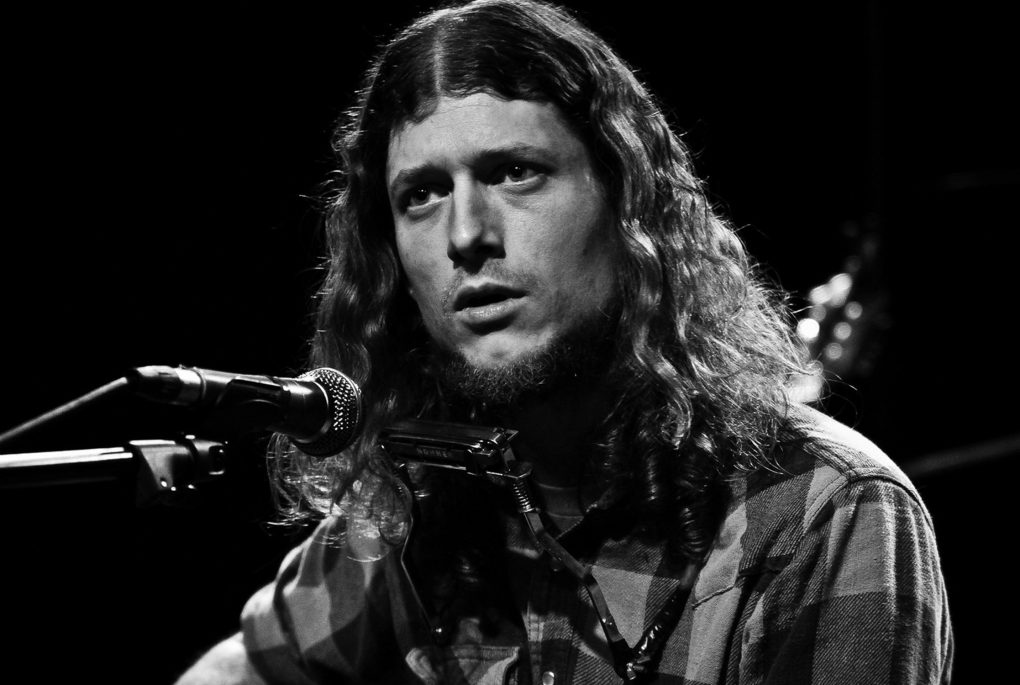
Joseph Huber’s music is little bit country, a little bit bluegrass and a little bit good old American roots rock and roll. His latest record, The Hanging Road, which was voted one of the 50 Essential Albums of 2014 by Saving Country Music, showcases a singer, songwriter and multi-instrumentalist who captivates listeners with his sincere and expertly-crafted songcraft.
Acclaimed for his lyricism and heart-on-sleeve writing style, Americana enthusiasts looking for a more subversive and substantive substitute for today’s modern country and over-processed Top 40 Americana will find much to love in Huber’s road-tested, rootsy approach.
Ghettoblaster recently caught up with Huber to discuss his background, approach and forthcoming Dayton performance.
When did you first realize you had an aptitude for music?
Well, I suppose I’m actually more of a “jack of all trades, and master of none” when it comes to actual musicianship. My playing abilities have always been “sufficient” more than “exemplary.” I’ll say that right off the bat.
Having said that, I started off on piano, and quickly moved to guitar which I took to very quickly, and after one has an initial grasp of some basic musical theory, you can translate that to a number of instruments with a fair degree of ease. But honestly, I never plan on being the guy to go to for a guitar solo. I’d rather write the song.
Were you mentored or encourage by one person in particular that provided the encouragement that this was a good direction for you in terms of a lifetime pursuit?
Well, my dad always pushed me toward music and encouraged me in that direction. His dad, my grandfather, was a true musician, who could play piano, accordion, other brass instruments, and played in regional bands all of his life. He truly was the guy who was the master of what he played.
I think my dad was excited about the idea that this ability was somehow being passed on in any way possible, because he never ended up following that path. He was a guitar owner, but never a player. He always said that maybe the music gene skips a generation.
When did you realize that roots and insurgent country sounds were those that you were drawn to as a musician and performer?
About age 18 when I moved away from home, but happened to take some records from my folks house, including John Hartford and also the old time compilation of “Will the Circle Be Unbroken.” I started listening to that while in my punk rock days when I was listening to Fear and Dead Kennedy’s and I apparently thought that Earl Scruggs wasn’t that far of a leap.
I had a banjo in my hands about two weeks after first putting those records on. It was about nine or ten months later when I ran into Jayke Orvis, who I found out was playing mandolin, and he gave me a burned CD with the Hackensaw Boys and others on it. That’s when I saw that other young guys could do this too.
You perform all the tracks on your records yourself. Is that a control issue or is that your way of creating something that is most genuinely your own?
Both certainly. I definitely have some control issues, perhaps after playing for years in .357 String Band where I think I always wanted certain aspects to be done differently on a musical level and recording level. Not that those weren’t great years. And I think there’s something to be said for getting someone’s strict individual vision versus a watered-down compromise where everyone is only mostly happy. That’s a personal bias though—maybe an “American” bias where we idolize what the lone individual can accomplish—I’m not sure.
I think that’s just my brain’s natural psychological temperament too. My mind gets creative and rejuvenated during my time alone versus other temperaments who get rejuvenated by a social atmosphere and enjoy creating together. So, these recent “solo” records were my way of curing both the creative need, and the need for control.
Is there a prominent theme you were trying to communicate or story you were trying tell with your latest, The Hanging Road?
I don’t know if there’s one over-arching theme. Maybe a few. A whole album of one theme would seem to “intellectualize” the aura of an album too much. I allow myself a certain amount of that, because I’m prone to do it, but also I have that side of my brain that always says, “Get over yourself and your planned conception of what your next album will be, and just write a song with a good hook!” Just let the songs come as they come. So, I think the last few albums have been those two parts of myself fighting it out.
When you tour sometimes you perform with a backing band. How do you determine who should be a trusted agent with your songs?
Well, I have met most of them at random and by chance through musical acquaintances and it just fell into place. Jason Loveall, the fiddler, is a Milwaukee guy like myself with a rich musical past who I had known of for some time. After finally hounding him a couple times and lassoing him into playing a show, it just felt great. So he’s my “go to” guy now.
As far as bass players, I’ve found they are often very busy guys who are in lots of bands. The one’s that are good are in high demand, so I take who I can grab often, although if I had my pick, my buddy Peter Pagel, who played some tours in the past with me, is the most trustworthy and spot-on bassist I’ve found.
Is there a time that a collaborator brought something to the table that absolutely floored you?
Both of those fellas I just mentioned have certainly floored me. Jason can play fiddle any style at any time. He can play a violin solo more akin to an electric guitar solo if you want, and you have no choice but to be amazed by it. And as far as a bassist, what you really want it someone who you never have to think twice about holding down the tune, and not over-playing. That’s what Pete does, he hold it down solid. He never asks to practice a song with you…he’ll just show up and already know everything…and he really does! That’s what any songwriter is looking for.
Will your forthcoming Dayton stop be with a band in tow or a one-man-band setup?
Jason will be joining me on fiddle for that run. We just did a week of shows together in Kansas, Missouri, and Iowa, and we are musically locked in with each other at this point and we can plow through tunes at this point without hesitation. The sound is really big for two guys. I can often count the lower half of my body doing the percussion as the third band member also—one that I don’t have to pay.
What is the best compliment you’ve ever received on your music?
Probably from any of the number of folks who say that my music is the reason they started playing banjo, or started playing any instrument at all. When I think of the people in my life who are the reasons I play music the way that I do, it crazy to think that I would be ‘that’ person in someone else’s life. There’s a profound sense of responsibility that comes over you when a person tells you that you have influences them in such and such a way. It’s a great feeling certainly, but also one that’s strange and hard to mentally grasp.
I’ve also had folks tell me that a song of mine helped them get through a hard time—whether it was a family member passing, or any other personal overcoming, whether from an injury or war-time experience. It’s surprising how far and where a song can travel without you knowing it. I’ll take those personal compliments over any sort of reviewer’s Bob Dylan comparison. Ha! Reviewers really need to stop using that comparison for every up-and-coming songwriter. Every time I hear someone being compared to Bob Dylan, and think to myself, “Ok, so you’re saying that you’re about to introduce me to the songwriter that I’m going to be listening to for the next fifty years?…Alright…Here we go.”
Do you believe there is an important and burgeoning roots movement that is taking shape in the U.S. and abroad? If so, what is your role in that?
Certainly I think there is a great up-surge in roots influenced bands in our day, and I can’t be upset that folks are getting into it, because if people have their ears and minds open to that kind of music, then that’s more people who can share their appreciation for such great musical history.
Having said that, I usually try to avoid the conception in my own mind of being a part of a movement, because of a feeling that I have a personal responsibility to the music and writing, and making sure I’m doing my own individual thing. If each band or member of the roots community continues to individually do their own creative best, that will be what keep movements going. If folks get too closely associated and tied to musical movement, they will rise and die with it. Period. Personally, I’d like to rise and fall by my own merits.
What are the accomplishments or benchmarks you’ve reached that you are most proud of?
Looking back, I’m honored to have been a part of a band, .357 String Band, that people mention as one of the reasons they listen to roots music at all. That’s an amazing thing to hear. That band allowed me to play huge festivals in Europe in front of thousands of people. Can you imagine being a bluegrass band playing a sold out punk festival where Exploited is the headliner? That just doesn’t happen!
And on the rather hilarious opposite side of that coin, I’m glad I’ve continued writing and releasing music that is apparently of a high enough quality to no longer be “Joseph Huber, formerly of .357.” Defining yourself on your own terms and having folks come along with you feels great. Just continuing to write songs which I’m proud of is its own benchmark, and hopefully folks keep listening.
What would you like your lasting legacy to be as an artist?
I have no clue. When I think of “legacy” I always think of a person that society as a whole has decided upon as being objectively important to musical history. I don’t know if I could dare put myself into such a hypothetical scenario. Really, the only way an artist can continue to be content is by creating things that he or she themselves is personally satisfied with. I guess the impression I hope to leave upon other folks who’ve heard my music is that I was truly defined a unique sound that was artistically my own.
I also hope people who I meet continue to think of me as just a normal approachable decent person, who didn’t let being an “artist” turn them into a deformed sort-of human personality. That’s a pretty tame legacy, I know. But anything more would probably be embellished.
(Last Ditch Promotions presents Joseph Huber and The Tillers on Friday, March 20, at The Canal Public House, 308 East First Street. The performance is open to audiences 18 and older. Visit Joseph Huber at www.josephhubermusic.com.)




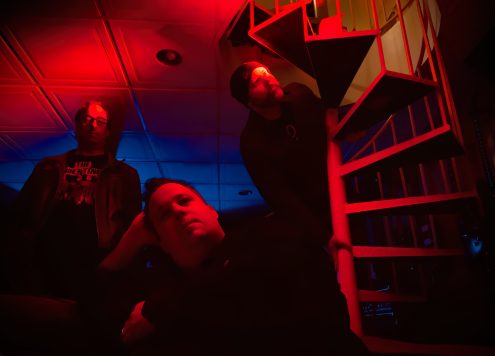
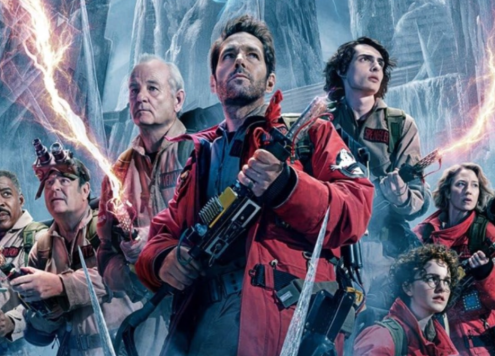

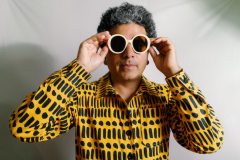
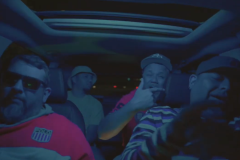
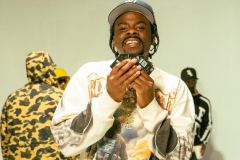
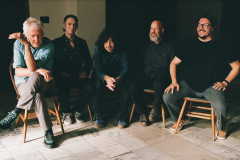

Social Media